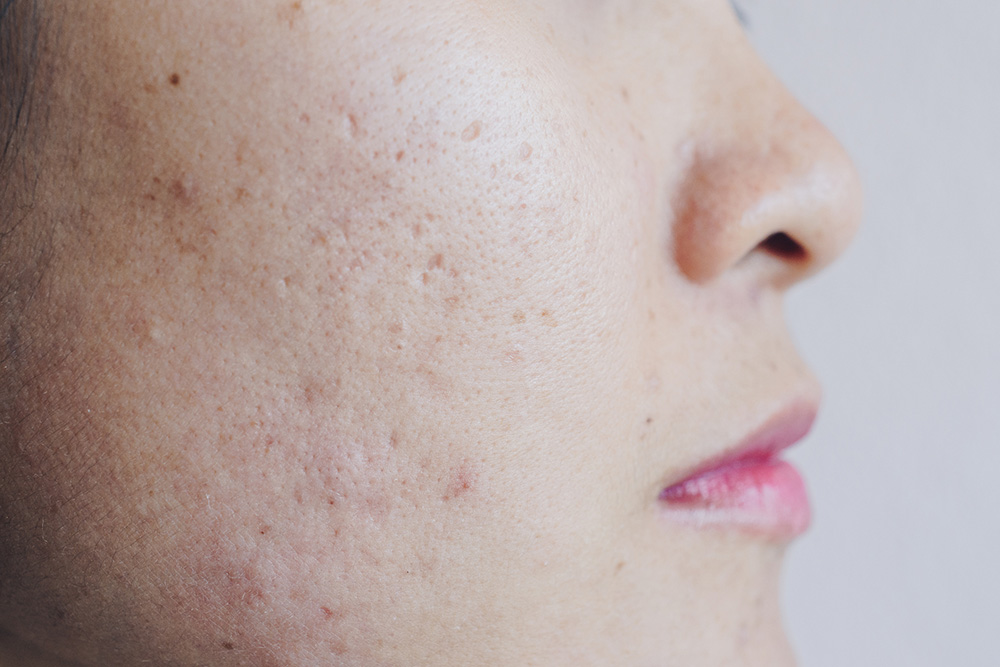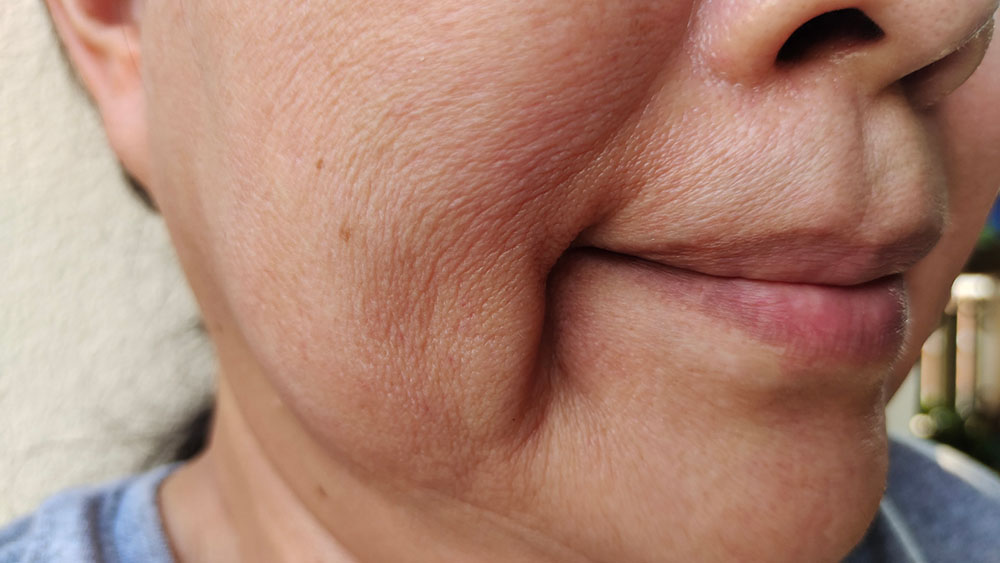We all want to have healthy, clear skin. Nobody wants to look in the mirror and see anything close to an acne breakout. Unfortunately, acne is one of the most common skin conditions in the world and it affects an estimated 85% of people at some point in their lives.
However acne can be treated and even prevented at home with a few very basic hygiene and health tips. Here are basics of home acne treatment.
What is acne and why does it happen?
Let’s start by talking about what acne actually is and what causes it.
Acne is caused by a variety of factors. It is typically the result of pores or hair follicles that have been clogged by excess oil produced by the sebaceous glands in the skin. A special type of bacteria, P. acnes bacteria, thrives in these clogged pores, causing inflammation and pimples.
Oily skin can be caused by hormones, genetics, or diet—or a combination of all three. Fluctuations in hormones during puberty explain why most of us experience acne as teenagers, or later in life during pregnancy or other hormonal shifts. Learn more about hormonal acne here.
Use gentle cleansers
It is good to start with a thorough yet gentle cleanser if you are dealing with stubborn blackheads, whiteheads and pimples. This can be anything from a natural home remedy or a mild face wash—anything that will clean without stripping your skin of its natural oils, which serve as a protective barrier.
From a skin treatment perspective, please understand that a number of the more popular “acne specific” skin wash products are usually on the strong side for most users. These acne washes contain things like salicylic acid or benzoyl peroxide, which can irritate the skin if used too much or improperly—this will not help your acne and may make matters worse.
You should stop using and consult a professional if you experience any skin irritation or burning during this home acne treatment. Only use these acne face washes if instructed by a dermatology professional or use them sparingly.
Opt for mild cleansers to keep your pores clean, and aim to prevent acne before it happens, rather than try to treat it with harsh chemicals. Ask your dermatologist for a recommendation for a skin cleanser.
Exfoliate regularly (and gently)
Too much washing can dry out the skin, especially when using harsh acne products. When our skin is dry, it can create a buildup of dry skin and signals to our skin it needs to produce more oil. The buildup of dry skin cells gets trapped in the oil in our pores and hair follicles, causing acne.
Exfoliation treatments will remove surface dry skin cells and less oil will stay trapped in the pores, helping you to be blemish-free.
Remember, this particular home acne treatment should be a gentle process, and any exfoliating process can be taken too far. Your goal is not to irritate your skin but to gently refresh it.
Eat healthy
You could be doing all the above things the right way but still not be getting any positive results. The problem could be because you are not dealing with the root cause of the acne, which may be found inside your body.
Treating acne from inside out requires you to eat a well-balanced, healthy diet.
Foods to avoid that may cause acne
It’s tricky to determine which foods cause acne since everyone has different genetics, hormone compositions, and additional environmental factors. While there’s no conclusive evidence which foods cause acne for certain, there are quite a number that seem to be common triggers for many people.
Here are a few broad categories of foods to avoid to prevent acne
- Sugary foods
- Processed meats
- Dairy
- Fried food
- Hydrogenated oils
- Alcohol
The key thing to note here is that these are foods that cause inflammation, contain disruptive hormones, or contain preservatives and sugar, all of which can contribute to acne.
Foods that may help prevent acne
- fruits and vegetables
- whole grains (brown rice, oats, quinoa)
- lean protein (fish, chicken)
- omega-3 rich foods (nuts, seeds)
You can choose berries, clean protein or leafy green vegetables to ensure you’re getting plenty of essential antioxidants and vitamins. Consume more wild fish and grass-fed meats to avoid processed meats and prevent inflammation. Look for foods rich in omega-3s such as wild-caught salmon, seeds, and nuts. Zinc-rich foods are also encouraged, and can include pumpkin seeds, lamb, and chicken.
Prevent acne at home with these simple steps
Work on establishing a healthy routine that fits your skin type and stick to it. Home acne treatment that works for one person may not work for you at all, so you need to ensure you have the best routine for your type of skin. And, some patience is required, so don’t expect your acne to disappear overnight.
If you feel you are covering these basics and not seeing any improvement, then it might be time for you to visit a professional. Our providers here at Dermablue can help you manage all aspects of your skincare. Call today to learn more or contact us to schedule an appointment to evaluate your skin care needs.





